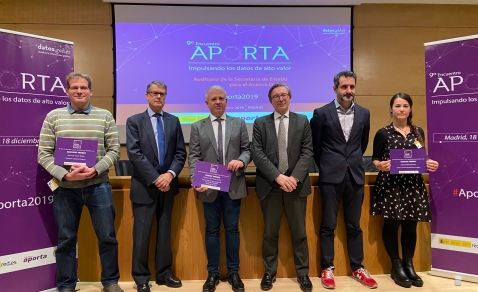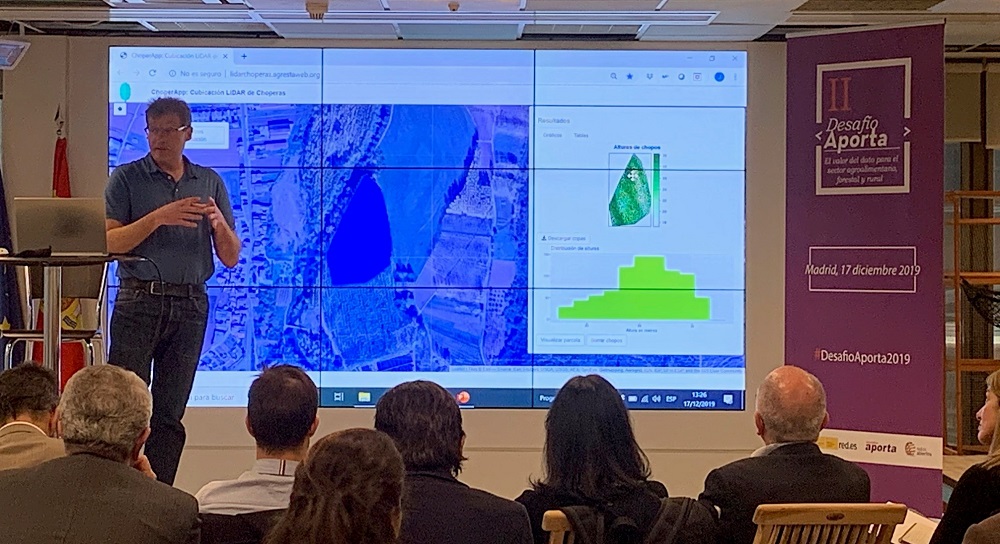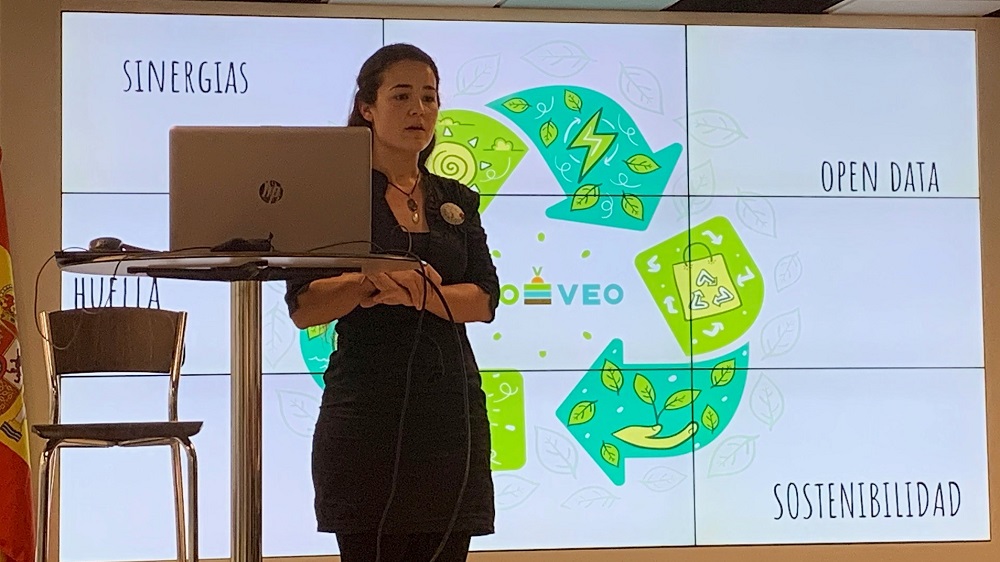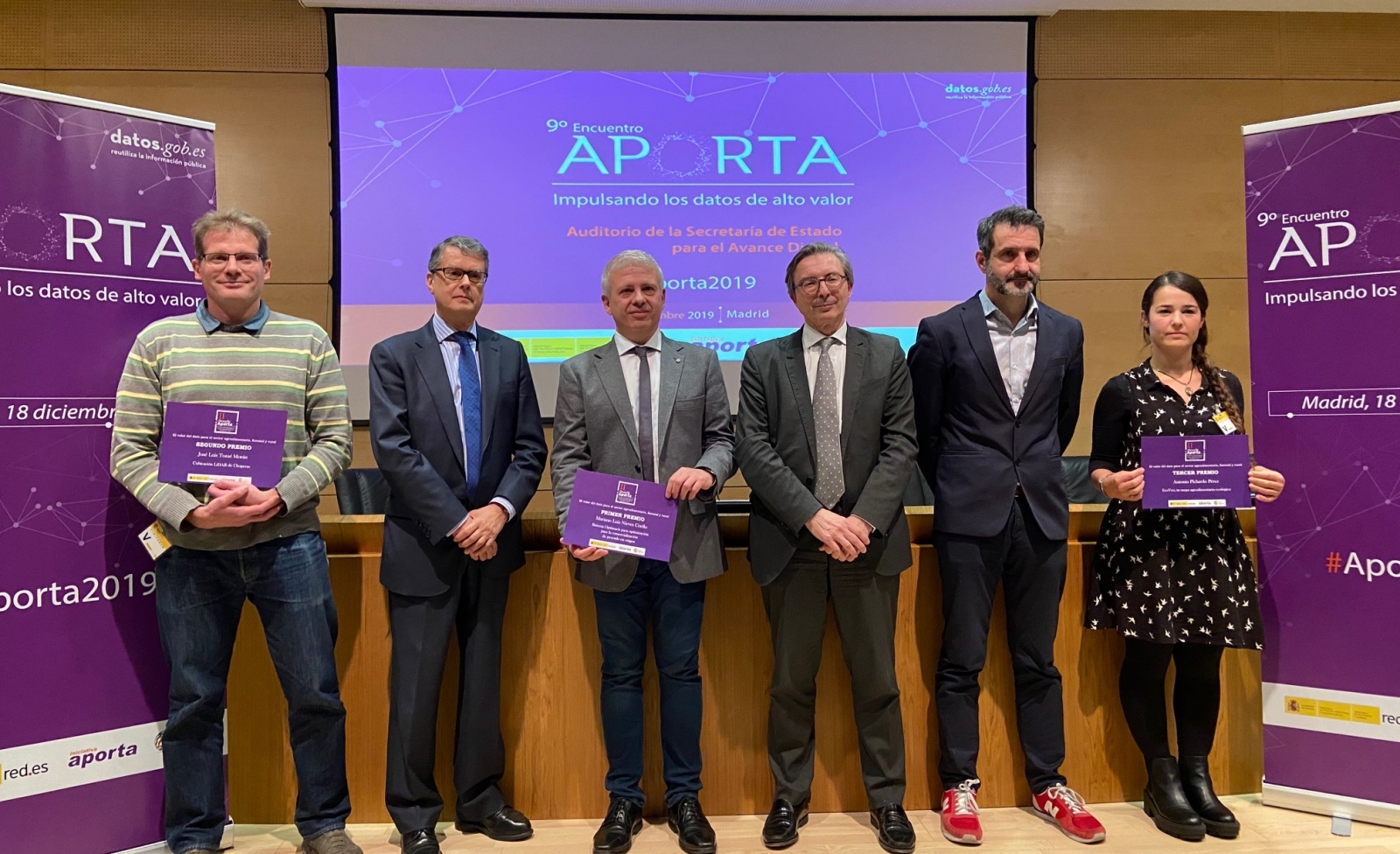A predictive model to optimize fishing wins the Aporta Challenge 2019
Fecha de la noticia: 19-12-2019

The Aporta Challenge 2019 has come to an end. On December 17, the 10 finalists, chosen among the 40 ideas submitted in May, showed the jury the prototypes they have been preparing for the last months.
After a difficult deliberation, due to the high quality of the works presented, the jury selected the three winners based on three criteria: ease of use, technical quality of the prototype and viability of the solution.
First place went to Optimacis, a solution that offers an objective assessment of the prices of the fish caught. Through machine learning technologies, Optimacis predicts the demand for fish in each fish market. In this way, fishermen can make real-time decisions about the species to be captured, rationalizing the fishing grounds and improving their sustainability. This information is also useful to fishermen for redirecting their sale to the most profitable markets based on auction prices for the species they have just caught.
Optimacis adds currently dispersed raw data, which comes mainly from 3 sources: the characteristics of the fleet which operates in the fishing grounds, the meteorological factor in the geographical area of the fishing grounds and other socio-demographic factors associated with consumers. The service has been devised by Mariano Luis Nieves, who presented the project to the jury.

Mariano Luis Nieves, presenting Optimacis
The second place went to ChoperApp, a web platform to estimate the volume of poplars at a local scale in La Rioja, but which can be exported to other regions of the Ebro and the Duero Basin.
Choperas have a fundamental economic role in rural areas of Spain. Specifically, in La Rioja, they represent more than 50% of the value of the wood that is sold every year, despite representing 1.5% of the forest area. Using data from the LIDARA PNOA of the National Geographic Institute and Copernicus, Chopperapp quantifies forest resources in real time. It is an idea of Agresta Coop that was explained by Jose Luis Tomé.

Jose Luis Tomé, showing the functionalities of Chopperapp
The third place went to Ecoveo, an open license website that shows on a map more than 36,000 ecological agri-food operators. Its objective is to standardize the available data of said producers to promote transparency in the sector and facilitate contact between consumers, producers and companies, facilitating the purchase of proximity products.
Ecoveo uses information from the certifiers themselves authorized by each Autonomous Community, and datasets such as the Registry of organic food producers in Castilla La Mancha, or different datasets from the Ministry of Agriculture, Fisheries, Food and Environment. Ana María Bello defended the idea, developed in collaboration with Antonio Pichardo.

Ana María Bello, explaining what Ecoveo is
The three winners will receive 4,000, 3,000 and 2,000 euros respectively. You can learn more about these 3 projects in social media by following the hashtag #optimacis, #Chopperapp and #MapaEcoveo; and discover the rest of the finalist projects in this link.
Congratulations to the 3 winners and all the participants for the great work done during the whole Aporta Challenge 2019!












